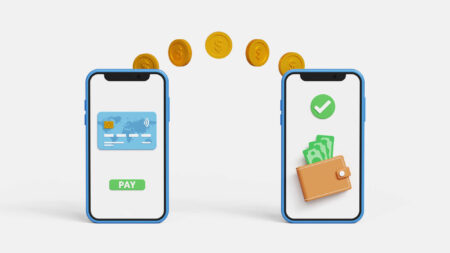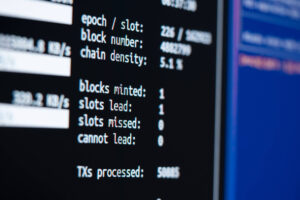The Lightning Network is an "off-chain" or "Layer-2" scaling solution for Bitcoin. The Lightning Network tackles Bitcoin’s biggest problem of scalability. Bitcoin's block size is fixed in the programs code, making it difficult to optimise the transaction validation speed. Bitcoin is much slower than traditional payment systems such as Visa, Mastercard, PayPal but also slower than more recent Blockchain developments such as Ethereum or Solana.
The Lightning Network solves the scalability problem by opening direct (peer-to-peer) payment channels that are not on the actual Bitcoin blockchain. As long as this payment channel is open, any number of micro payments can be sent back and forth without ever having to access the original (Layer 1) Bitcoin blockchain. Through Payment channels, transactions on the Bitcoin blockchain are much faster and have lower fees.
The beginning of the Lightning Network
The Lightning white paper was published in early 2015. Blockstream, a leading provider of blockchain technologies, directly began with the development of its implementation. It is called c-lightning because due to the C programming language used for its development. The Lightning Network required making changes to the Bitcoin program code (Bitcoin Core). The most important of these updates was the SegWit (Segregated Witness) in August 2017.
Blockstream and Lightning Labs released their first versions of the Lightning Network in early 2018. The Lightning Network is a network of nodes running the necessary software. The release allowed users to try and test out the network. Elizabeth Stark has been a prominent face of the Lightning Network, active as a speaker and current Lightning Labs CEO.
Bitcoin as a payment system in Venezuela
In the context of global payments, Bitcoin has played a noteworthy role in countries facing economic challenges, as exemplified by Venezuela. The Lightning Network made global headlines in 2021. At that time, El Salvador announced that the country would make Bitcoin a legal tender.
The nation has grappled with hyperinflation, currency devaluation, and stringent capital controls, leading many Venezuelans to turn to Bitcoin as a means of preserving wealth and conducting transactions. Bitcoin's decentralized nature allows individuals in Venezuela to bypass traditional banking systems and access a more stable store of value, mitigating the impact of the country's economic turmoil. This showcases the potential of Bitcoin to serve as a financial lifeline in regions facing economic crises, demonstrating its utility beyond traditional banking systems and government-issued currencies.









